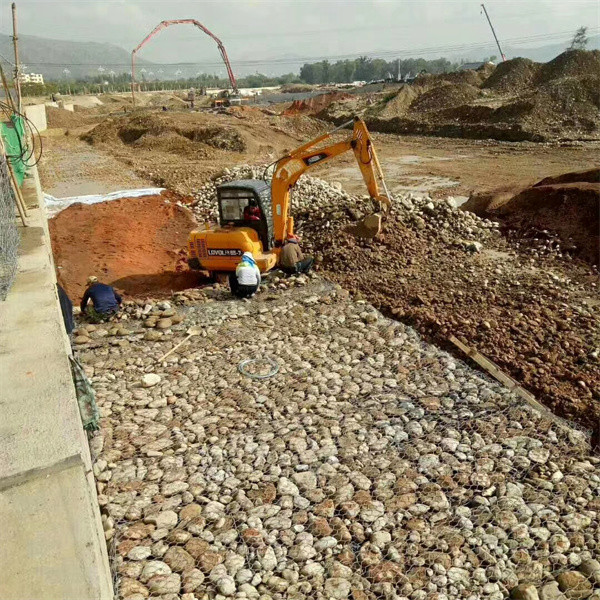Ogo . 14, 2024 06:41 Back to list
Construction Techniques and Materials for Durable Gabion Wall Wire Structures in Landscaping Projects
The Role of Wire in Gabion Wall Construction
Gabion walls have emerged as a popular solution in civil engineering and landscaping due to their durability, versatility, and aesthetic appeal. These structures, composed of wire mesh baskets filled with stones, gravel, or other materials, are commonly used for erosion control, slope stabilization, and as decorative elements in gardens. At the heart of gabion wall construction lies the wire used to create the frames that hold the aggregate, making it crucial to understand its significance and qualities.
Composition and Types of Wire
Gabion walls typically utilize galvanized steel wire, which is designed to resist corrosion and withstand the elements over time. Alternatively, PVC-coated wire is also available, providing an additional layer of protection against corrosion while offering aesthetic options in terms of color. The choice of wire significantly influences the longevity and functionality of the gabion structure. For example, the thickness of the wire, often measured in millimeters (or gauges), can determine the overall strength of the wall. Common gauges for gabion wire range from 2.0 mm to 4.0 mm, with thicker wires offering increased rigidity and durability.
Construction Process
The construction of gabion walls involves several steps, starting from the design phase to the installation. Once the design is finalized, wire mesh panels are fabricated into baskets, which are then filled with chosen materials like granite, limestone, or even recycled concrete. The filling process is essential, as proper compaction and arrangement of the fill material enhance the structural integrity of the wall.
Once the gabion baskets are filled, they are stacked and secured together. This is where the quality of the wire becomes apparent. If the wire mesh is of poor quality or improperly installed, the baskets may not hold up under pressure or against environmental factors such as water flow, soil movement, or even seismic activity. Strong, well-constructed wire mesh ensures that the gabions remain intact and stable throughout their lifespan.
wire for gabion wall

Advantages of Gabion Walls
One of the primary advantages of using wire for gabion walls is their permeability, which allows water to flow through the structure, reducing hydrostatic pressure and minimizing the risk of failure. This characteristic makes gabion walls ideal for areas prone to flooding or erosion, as they prevent soil erosion while maintaining structural stability.
Moreover, gabion walls are environmentally friendly. The use of natural stone fill materials allows for seamless integration into the landscape, promoting biodiversity and encouraging vegetation growth. Over time, the spaces between the stones can become habitats for various species, contributing positively to the local ecosystem.
Maintenance and Longevity
The longevity of gabion walls largely depends on the quality of the wire used. Corrosion-resistant wire ensures that the structure can endure harsh weather conditions without significant degradation. While maintenance is generally minimal, regular inspections for signs of movement, shifting stones, or compromised wire can help prolong the lifespan of a gabion wall and address potential issues before they escalate.
Conclusion
Wire plays a vital role in the functionality and durability of gabion walls. By serving as the framework that holds the aggregate in place, high-quality wire protects against erosion, provides structural integrity, and can even contribute to aesthetic elements in landscaping. As the demand for sustainable and effective erosion control solutions continues to grow, understanding the significance of wire in gabion wall construction will remain essential for engineers, landscapers, and property owners alike. Investing in quality materials and adhering to best practices in installation can ensure that gabion walls not only meet immediate needs but also stand the test of time, providing lasting benefits to both the environment and the properties they protect.
-
Why PVC Coated Gabion Mattress Is the Best Solution for Long-Term Erosion Control
NewsMay.23,2025
-
Gabion Wire Mesh: The Reinforced Solution for Modern Construction and Landscape Design
NewsMay.23,2025
-
Gabion Wall: The Flexible, Seismic-Resistant Solution for Modern Landscaping and Construction
NewsMay.23,2025
-
Gabion Wall Solutions: The Durable, Decorative, and Affordable Choice for Every Landscape
NewsMay.23,2025
-
Gabion Basket: The Durable and Flexible Alternative to Traditional Retaining Walls
NewsMay.23,2025
-
Gabion Basket: The Proven Solution for Slope Stability and Flood Control
NewsMay.23,2025
-
Versatility of Chain Link Fence Gabion
NewsMay.13,2025






